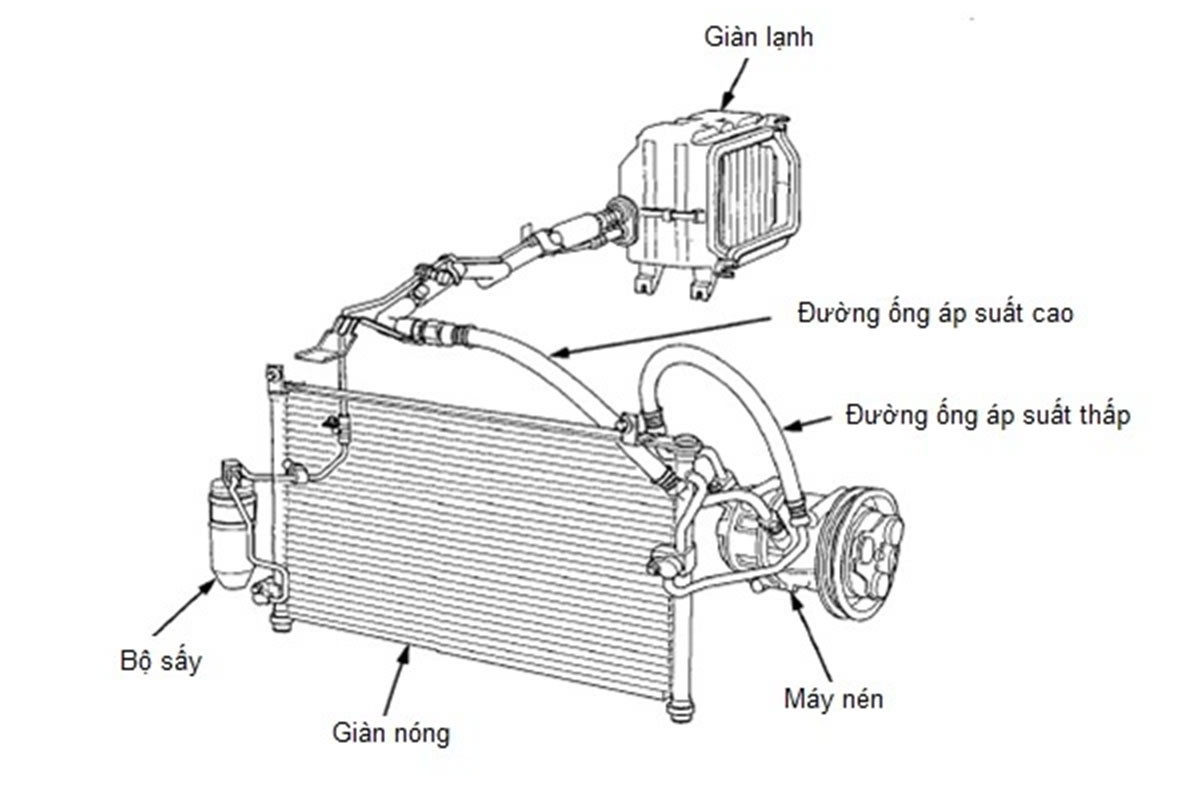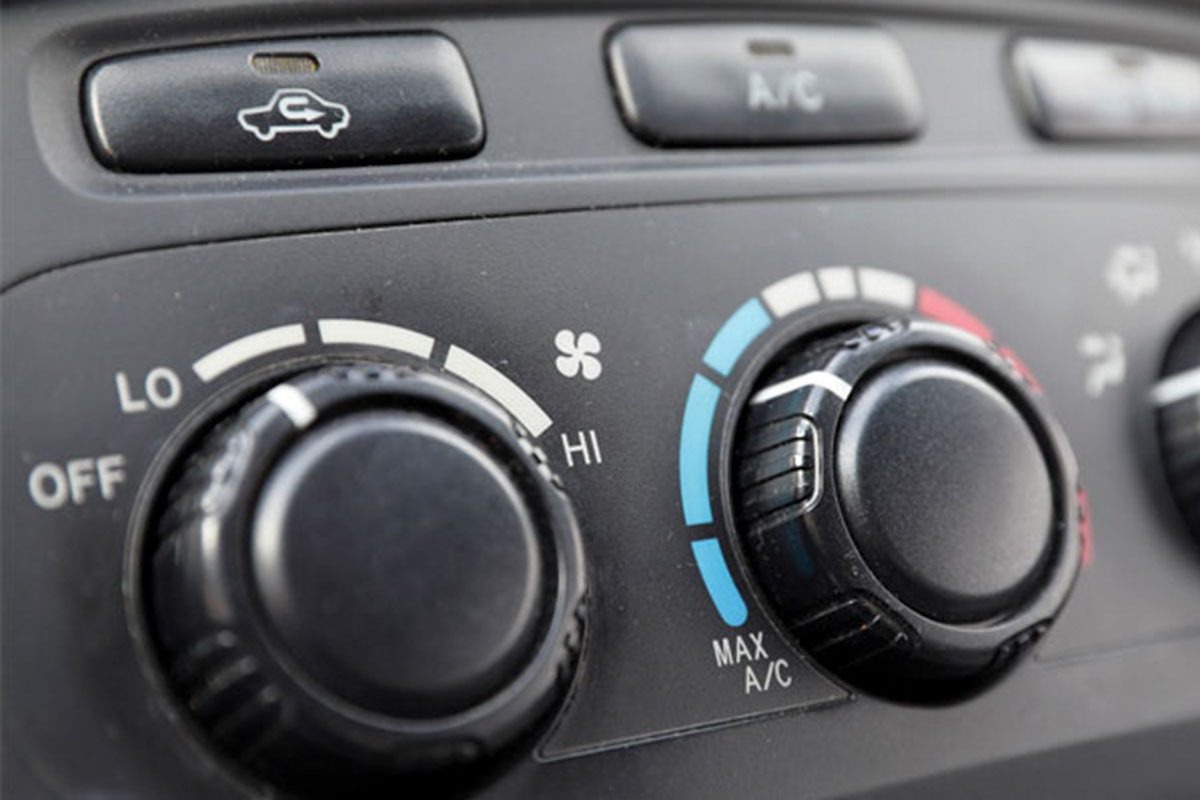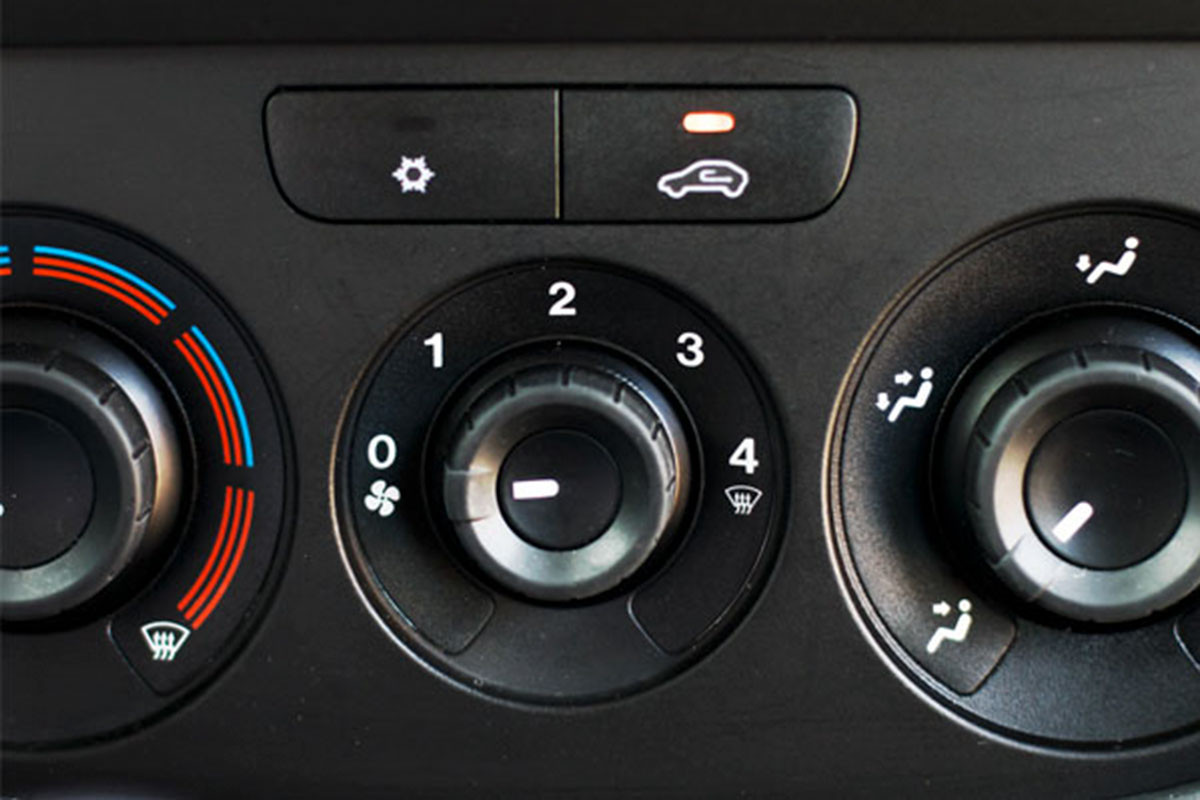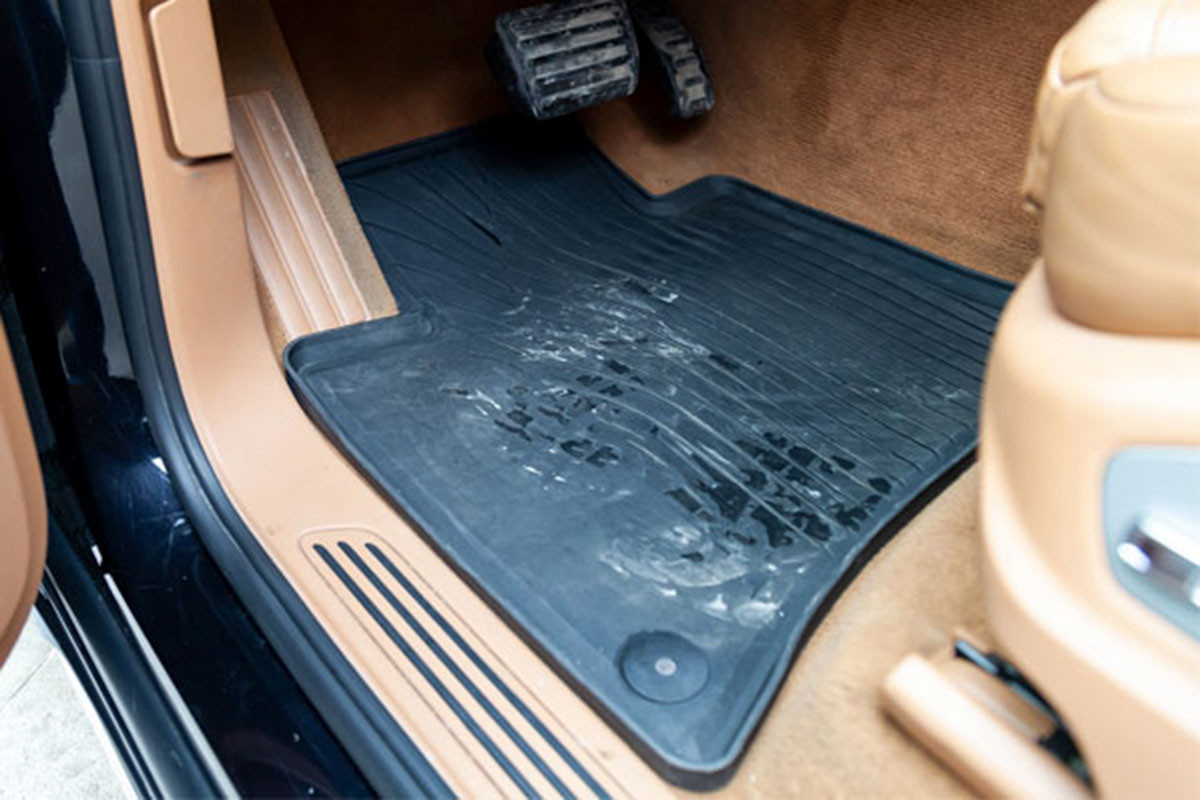6 types of extremely unpleasant odors in cars and how to fix them
An unpleasant odor in the car's air conditioner not only shows that the interior is having problems, but also shows the potential danger of fire and explosion when the car is running.
Air conditioning system and how it works
Car air conditioning systems are often referred to as climate control systems. On a modern car, this system will operate continuously while the engine is running (except for electric cars).
When operating, the air conditioning system usually draws in outside air and heats that air or cools it, dehumidifies, and then delivers it to the car's cabin. As a result, the occupants of the car will feel less cold in winter or in the harsh heat of summer.

Most cars today have an air filter built into the air conditioning system that removes dirt, pollen, and insects from the air before entering the vehicle. Over time, air conditioner filters will gradually become filled with dirt, so they need to be cleaned or replaced periodically.
When you select the recirculation mode on the air conditioning system, it will stop taking in outside air and recirculate the air inside the vehicle. For many modern cars, the air recirculation mode will automatically switch to the external intake mode after a short time.
The outside air inlet will then open to let in fresh air. This ensures that there is always a sufficient amount of fresh air circulating in the cabin as you drive.
Types of odors from the air conditioning system

Here are the types of odors you'll likely feel in your car whether it's been a few years or just bought.
Musty, vinegary (sour) or possibly dog-like odor.
- The smell of antifreeze, coolant or engine oil.
- Engine exhaust or rotten egg smell.
- The smell of gasoline or diesel fuel.
- Burning smell.
- The smell of tobacco or cigar smoke.
Why does the car air conditioner have a bad smell?
1. Musty or vinegary smell

This smell is often found in the air filter, in the indoor unit or in the ducts of the air conditioning system because the air conditioning system has the function of removing moisture from the air.
Meanwhile, humidity in a dark environment is ideal for mold growth. The organic growth of the fungus produces what we call a musty odor. The older the vehicle, the more likely this is to happen.
In addition, these odors can be found in places such as car floor mats, felt seat surfaces. Excess moisture inside any vehicle can cause this, especially in rainy or cold, humid climates.
2. Odor of antifreeze, coolant or engine oil
Antifreeze, coolant, or engine oil may leak inside the engine compartment. When this happens, the air-conditioning system inlets will inadvertently suck in all of the above odors to transfer into the vehicle.
In addition, antifreeze leaks in the heating coil of the air conditioning system will create more odors. At the same time, you can then observe antifreeze dripping on the right or left side of the footrest.
3. Engine exhaust or rotten egg smell

The smell of engine exhaust is often brought into the cabin by the air-conditioning system inlet when you first start the car. Meanwhile, the smell of rotten eggs will often appear in the car's exhaust stream if the exhaust catalytic converter is not working properly.
4. Gasoline or diesel smell
Gasoline or diesel odors can enter the vehicle's cabin due to a fuel leak in the engine, fuel line or tank. The smell of fuel if smelled from the outside can be considered a serious case. And if you smell them inside the cabin, you need to deal with them immediately.
5. Burnt smell

Burnt odors can also enter the vehicle through the intake process of the air conditioning system. Usually, the burning smell will originate from the wheel area, the common reason for the burning smell is mainly forgetting to lower the handbrake or using the brake too much.
6. The smell of cigarettes or cigars
The smell of cigarettes, cigars can appear on any car if the car has a smoker. The chemicals from the smoke will accumulate on the surfaces of the interior. When you set the recirculation air intake mode, odor-causing dirt may settle and enter the ducts and indoor unit of the air conditioning system.
How to reduce odor in the car
Before embarking on a problem with odors, you might wonder if there are ways to reduce the risk of these odors occurring? For most of the smells listed above, the answer is yes.
1. Always turn on the air conditioner

Many car owners have the habit of turning off the air conditioner while driving because they think this will save fuel and costs. But turning on the air conditioning system while driving will help keep the interior of the cabin airy and dry. This also helps to reduce mold growth in the air conditioning system and inside the vehicle.
2. Park in sunny spots
When parking outdoors, choose a sunny spot. Sunlight is the enemy of mold. If you need to disinfect and reduce the smell of mold inside your vehicle, stay away from shady parking areas.
3. Minimize the use of the air recirculation feature

The air conditioning system's air circulation is a cool feature to have when you're driving in rural areas, in dusty areas, or if you want to cool or warm up quickly.
But this also blocks the flow of fresh outside air into the car, which can promote mold growth.
4. Always let the floor mats dry

In wet weather, remove rugs if they are soaked in water and then let them dry overnight. Wet carpets that simply need to be placed in the footrest of the cabin can also produce foul-smelling mold. Dry carpets are less likely to have this happen.
5. Fix leaky locations ASAP
Leaks of antifreeze, oil, or fuel (petrol or diesel) will leave a burning smell around your car every time you put it in the garage. If these odors are detected, have the vehicle checked as soon as possible.
Remember, leaking fuel can lead to a fire hazard. The smell of exhaust also poses a health hazard to the occupants of the vehicle.
6. Replace the air conditioner filter

Air conditioner filters have a shelf life and should be replaced according to the manufacturer's recommendations. This should be done annually. Throwing away the old air conditioner filter can also remove the source of mold growth that is difficult for us to see with the naked eye.
Nhận xét
Đăng nhận xét